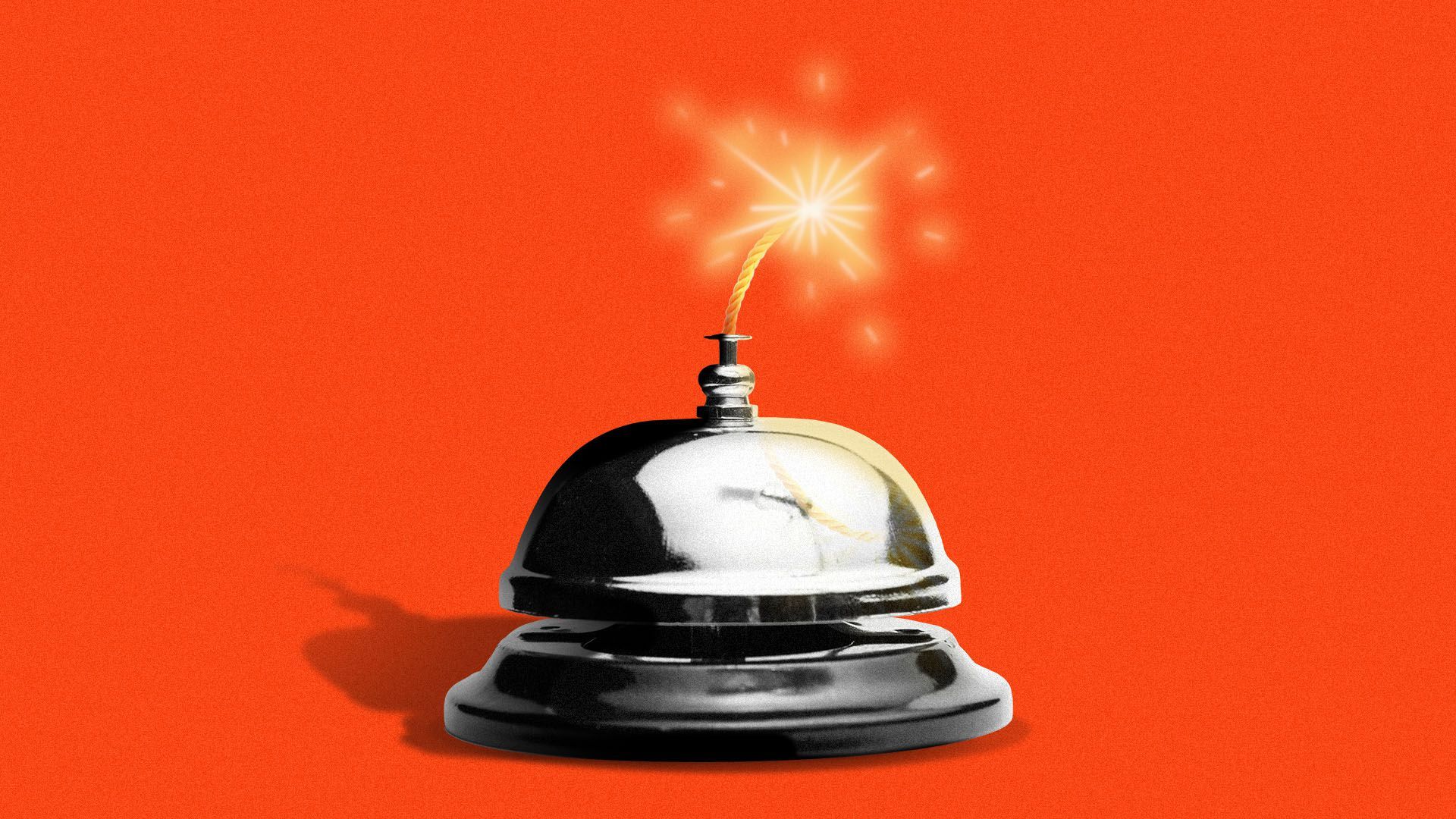Hotel industry warns of looming financial crisis
Add Axios as your preferred source to
see more of our stories on Google.

Illustration: Sarah Grillo/Axios
Hotel industry lobbying groups have fired a warning shot, exhorting lawmakers to provide them with financing to avoid a series of debt defaults they say could set off a widespread financial crisis.
Why it matters: Without the bailout — which would be in addition to government funds from the $2 trillion CARES Act — the industry says its members could be the first in a wave of debt defaults that would hit everyone from real estate investors and pension funds to average homeowners.
What's happening: In a letter to the U.S. Treasury, the Fed and the SEC, the American Hotel and Lodging Association (AHLA) and Asian American Hotel Owners Association requested government assistance to avoid defaulting on at least $86 billion in loans over the next several months, the Business Journals' Craig Douglas reports (subscription).
Details: The loans coming due are held in the collateralized mortgage-backed securities (CMBS) market, which is similar to the residential MBS market that crashed, setting off a wave of defaults, foreclosures and bankruptcies in 2008.
- Rather than the slow churn of buyers falling behind on their mortgages because of unexpected increases to their adjustable rates that happened then, hotels are on the brink of default because of an "unprecedented cash flow crisis."
- "The impact to our industry is already more severe than anything we’ve seen before, including Sept. 11th and the Great Recession of 2008, combined," AHLA president and CEO Chip Rogers said in a statement earlier this month.
What they're saying: Moody’s Investors Service cut its outlook for corporate debt to negative on Monday, saying "the coronavirus outbreak continues to halt normal business activity worldwide, with no clear turning point yet."
- Ratings analysts are expecting that "credit quality will deteriorate for rated corporate entities around the world, with defaults rising in the coming quarters."
The big picture: The corporate debt market is in a very precarious position as a result of years of high issuance and desert-thirsty investors hunting for yield.
- The Fed expects to open a lending facility to buy bonds from issuers who run into trouble, but their programs only apply to investment-grade companies at the top of the credit ratings pyramid.
- Many of the sectors most at risk of default issue bonds in the so-called high yield or junk bond space, which makes up almost 30% of issued debt.
- Moody's has said it expects to see significant defaults in the market.
Go deeper: When $2.2 trillion is not enough
